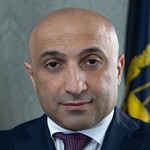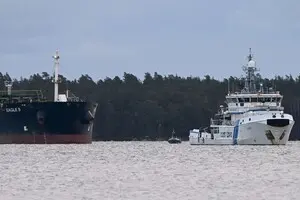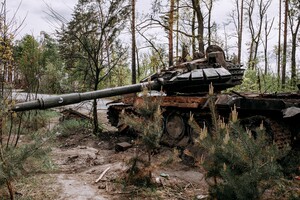What Prevents Ukraine from Extraditing War Criminals…

Ukraine is striving to bring war criminals to justice but has received no support from Interpol. Since 2022, Ukraine’s National Bureau of Interpol has submitted over 70 requests from investigators to issue international wanted notices for individuals suspected of war crimes. However, not a single request has been granted. The Interpol General Secretariat refuses even to review these requests, citing its prohibition against involvement in military affairs. Why is this happening?
Who Are We Dealing With?
First, let’s clarify what Interpol is and what its functions are. Interpol is an international organization that coordinates cooperation between law enforcement agencies in its 196 member states. Despite its official name—the International Criminal Police Organization—Interpol has little in common with a traditional police force. It has no authority to conduct arrests, investigations or prosecutions on its own. Nor can it compel member states to extradite suspects.
In practice, Interpol primarily focuses on crimes that pose a global threat regardless of national borders, such as terrorism, human trafficking, drug smuggling and financial crimes.
At the same time, Article 3 of Interpol’s Constitution strictly prohibits the organization from engaging in any activities of a political, military, religious or racial nature. It is precisely the “political” nature and the ongoing war that Interpol frequently cites when rejecting Ukraine’s requests.
Moreover, at one point, the issue of Interpol taking international crimes into account became relevant. In 2010, the Interpol General Assembly adopted Resolution AG-2010-RES-10, which clarified this matter. It emphasized increased support for the investigation and prosecution of genocide, war crimes and crimes against humanity through cooperation with the International Criminal Court (ICC), the International Criminal Tribunal for the former Yugoslavia, the International Criminal Tribunal for Rwanda and the Special Court for Sierra Leone. This way, Radovan Karadžić, Ratko Mladić, Félicien Kabuga were put on the wanted list, and were eventually detained. However, it is important to note that Interpol is not obligated to honor all arrest warrants issued by these tribunals.
In general, there are three ways to submit requests: 1) By international tribunals (Since a special tribunal for Ukraine has not yet been established, this applies only to potential requests from the ICC); 2) By UN Security Council-created bodies (This option is unlikely due to Russia’s veto power); and, finally, 3) Submitted by member states, except in cases where the request concerns citizens of another member state, and this other member state, having received information from the General Secretariat of Interpol, objects to the request within thirty days (which Russia probably does). Requests submitted in relation to international crimes based on the principle of universal jurisdiction may also be denied.
Thus, in order to fully use Interpol's tools, we need an authoritative mechanism for justice in the aftermath of war. After all, in other cases, Interpol has cooperated precisely with tribunals (courts investigating war crimes, crimes against humanity and genocide).
And I want to emphasize that the Special Tribunal for the Crime of Aggression, announced by the Core Group, which will be established in 2025 under an agreement between Ukraine and the Council of Europe, is unlikely to be the tribunal that will actively cooperate with Interpol, since it will have jurisdiction over only one of the four international crimes - the crime of aggression.
Russian Influence
Of course, it is impossible not to mention Russian influence on the organization. It was particularly evident before the full-scale invasion when not everyone recognized the war in Ukraine as an international armed conflict. For years, Moscow had been pushing its people into Interpol to block decisions that were unfavorable to Russia.
For example, in 2016, Russian police Major General Alexander Prokopchuk was elected as Interpol’s vice president. Later, he even vied for the presidency of the organization. Moreover, Russia actively used Interpol’s mechanisms for its own purposes. Just consider the international arrest warrants issued for Ukrainian military personnel and public figures starting in 2014. For example, in 2014, Interpol put the leader of the Right Sector, Dmytro Yarosh, on the international wanted list, who became a symbolic figure for Russian propagandists. His warrant was lifted in 2016, but as we can see, it took a significant amount of time to reverse the decision.
I want to mention another story that is evidence that the problem did not arise today. Even before 2022, one of the reasons for rejection was that cases submitted by Ukraine were classified as political. So, at that time, we in the Prosecutor's Office of the Autonomous Republic of Crimea were conducting procedural management in the case of Armen Martoyan, better known as "Samvel", the commander of the fourth unit of the "Crimean self-defense". He was involved in the beating of Oleksiy Honcharenko, the kidnapping of Osman Pashayev and Gennady Balashov, Andriy Shchekun and Anatoly Kovalsky, and later participated in hostilities in Donbas. Accordingly, he was wanted, in particular under Article 438 of the Criminal Code of Ukraine for alleged war crimes. At first, he was included in the Interpol database, but was soon removed, stating that the persecution was political in nature. In general, since 2014, that is, since the beginning of the Russian aggression, we have repeatedly tried to establish cooperation with Interpol and sent requests, but received refusals or further appeals.
And in general, when discussing Interpol in the context of potential approval of Ukrainian requests, we must also recognize that Russian requests can be accepted as well. One can only imagine where that might lead…
What Should Ukraine Do Now?
It’s not just about Interpol. Even if the international wanted list is granted, there’s still extradition. And here again there are problems. Since 2014, Ukrainian requests have been regularly ignored or rejected. There are two recent examples of this. The first is with Jan Petrovski, whom Finland did not extradite to Ukraine, but is trying on suspicion of committing war crimes. The second is quite recent. Denmark refused to extradite to Kyiv two suspects (under articles on grievous bodily harm, robbery, etc.) — Igor Kallaste and Alexei Danilov. The court in Copenhagen decided that Ukraine’s guarantees regarding respect for human rights are insufficient.
Why is there such distrust towards Ukraine? The war is a factor that really complicates the situation, because the international community fears that justice under such conditions may be biased. But the roots of the problem are much deeper. If we want the countries of the world to recognize our decisions and extradite suspects, we must prove that our system is capable of administering impartial justice in general. That is, to build a system that will be trusted both within the country and in the world.
As for international crimes, we must now responsibly approach the topic of building a future justice mechanism that would cover not only the crime of aggression. In my opinion, this should be a hybrid justice mechanism that would include both Ukrainian and international elements. For example, as was the case in Sierra Leone, Bosnia and Herzegovina.
And another obstacle is our penitentiary system. The conditions of detention in Ukrainian prisons do not meet international standards, and this has long been a problem in extradition cases. The European Court of Human Rights has repeatedly recognized systemic violations, including inadequate conditions of detention.
So it is unlikely that Interpol will change its position in the near future. Therefore, we should focus on building a justice architecture that will inspire trust and create a hybrid justice mechanism. And, of course, continue cooperation with other states where suspects may be located, as we have done before. Only in this way can we ensure the inevitability of punishment.
Read this article in Ukrainian and russian.
Please select it with the mouse and press Ctrl+Enter or Submit a bug















 Login with Google
Login with Google